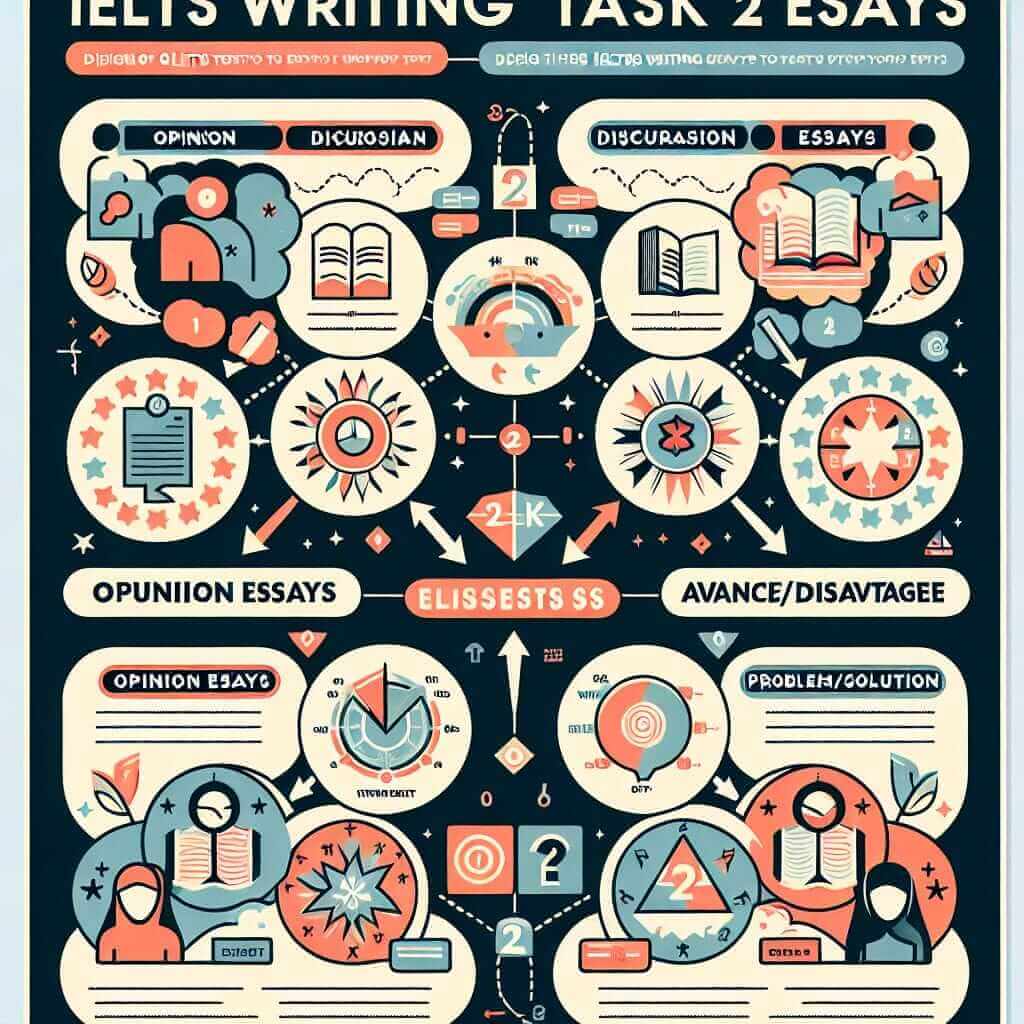The IELTS Writing Task 2, an academic essay, plays a crucial role in determining your overall IELTS score. It assesses your ability to express thoughts cohesively, construct logical arguments, and demonstrate a strong command of English grammar and vocabulary. This comprehensive guide will delve deep into the intricacies of Writing Task 2, equipping you with the knowledge and strategies to excel in this section.
What is IELTS Writing Task 2?
In Writing Task 2, you are presented with a point of view, argument, or problem and asked to write an essay in response. You are expected to write at least 250 words, showcasing your ability to:
- Understand the task requirements.
- Generate ideas and develop them coherently.
- Structure your essay logically with a clear introduction, body paragraphs, and conclusion.
- Use a variety of sentence structures and vocabulary accurately.
- Present grammatically correct sentences.
Types of IELTS Writing Task 2 Essays
The prompts in Writing Task 2 can be categorized into several common types:
- Opinion Essays: You are asked to agree or disagree with a given opinion or present your perspective on a specific issue.
- Discussion Essays: You need to discuss both sides of an argument and provide your own opinion.
- Advantage/Disadvantage Essays: You are required to analyze the benefits and drawbacks of a particular trend or phenomenon.
- Problem/Solution Essays: You need to identify a problem and propose possible solutions.
- Two-Part Question Essays: These essays present two questions related to a central theme that you need to address comprehensively.

Strategies for Success
Here are some proven strategies to help you achieve a high score in IELTS Writing Task 2:
1. Analyze the Question Carefully
Before you start writing, thoroughly analyze the prompt to understand its exact requirements. Identify the essay type, the key points to address, and your target audience.
2. Plan Your Essay
A well-structured essay is crucial for clarity and coherence. Spend a few minutes brainstorming ideas and creating a basic outline before you start writing. A typical structure includes:
- Introduction: Briefly introduce the topic, paraphrase the question, and state your thesis statement.
- Body Paragraphs (2-3): Each paragraph should focus on a separate aspect of your argument with supporting evidence and examples.
- Conclusion: Summarize your main points and restate your opinion, leaving a lasting impression on the reader.
3. Use a Variety of Sentence Structures
Demonstrating your grasp of complex sentence structures can significantly enhance your score. Use a mix of simple, compound, and complex sentences to add fluidity and sophistication to your writing.
4. Expand Your Vocabulary
Using a wide range of vocabulary accurately is crucial for showcasing your language proficiency. Incorporate synonyms, idiomatic expressions, and topic-specific vocabulary to impress the examiner.
5. Practice Regularly
Consistent practice is key to achieving your desired score. Familiarize yourself with different essay types, practice writing within the time limit, and seek feedback from experienced IELTS instructors to identify areas for improvement.
Example Task and Analysis
Prompt:
“Some people believe that the best way to improve public health is by increasing the number of sports facilities. Others, however, believe that other measures are required in addition to this. Discuss both views and give your opinion.”
Analysis:
This is a discussion essay where you need to discuss both sides of the argument and present your own opinion.
Possible Outline:
- Introduction: Introduce the topic of public health and paraphrase the given views.
- Body Paragraph 1: Discuss the benefits of increasing sports facilities for public health (e.g., promoting physical activity, reducing obesity).
- Body Paragraph 2: Discuss other essential measures for improving public health (e.g., healthy eating campaigns, access to affordable healthcare).
- Conclusion: Summarize the discussed points and reiterate your opinion on the most effective ways to improve public health.
Conclusion
Mastering IELTS Writing Task 2 requires a combination of strong writing skills, effective exam techniques, and consistent practice. By understanding the task requirements, planning your essays meticulously, and focusing on grammar, vocabulary, and coherence, you can approach this section with confidence and achieve your desired band score. Remember, the key to success lies in consistent effort and a strategic approach.